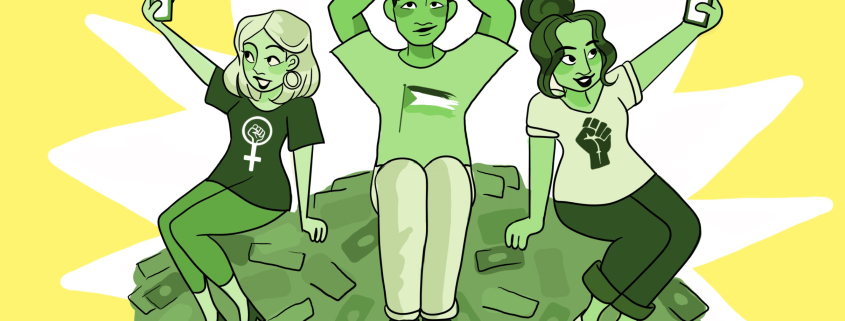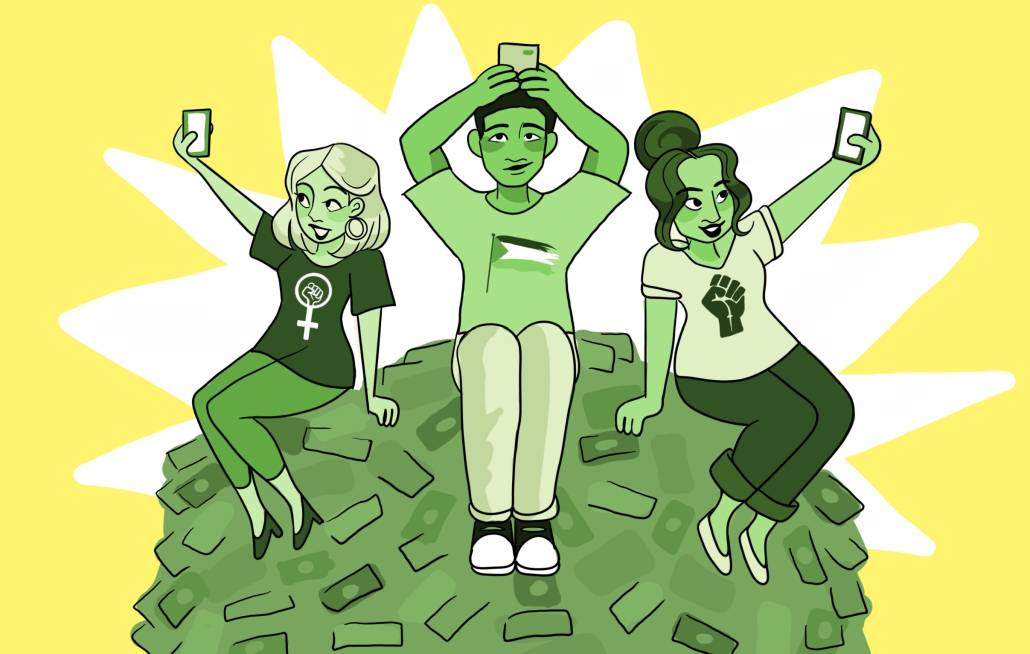Progress Without Profit: ‘The Activist’ and profiting off social change
CBS’ “The Activist” had the key ingredients for a hit reality competition show: a panel of celebrity judges, contestants competing against one another for a prize and the support of a major network. However, while shows such as “America’s Got Talent” and “The Voice” dominate ratings, “The Activist’’ faced swift backlash after its concept was announced.
CBS billed the show — hosted by Usher, Priyanka Chopra Jonas and Julianne Hough — as capable of inspiring “real change.” “The Activist” would’ve featured six activists in areas of health, education and the environment, competing through digital campaigns for a spot at the G20 Summit in Italy. The “winner” would receive the most money for their cause.
Twitter immediately attacked the show, accusing creators of profiting off activism. I agree. Activism comes from community building and teamwork, which makes a game-show format feel performative and out-of-touch. Moreover, the complexity of the health, education and environment sectors requires careful attention and understanding. Transforming these issues into soundbites for prime time television dangerously oversimplifies them.
In response to the criticism, CBS announced it would scrap everything filmed, opting for a complete reimagining of the show. Instead of a competition, CBS will air a primetime documentary highlighting the work of the six activists. The judges have also spoken up, expressing regret for getting it “wrong.”
While I’m glad CBS listened to the masses, I can’t believe they greenlit the concept for the show in the first place. Multiple rounds of people heard the pitch and thought to themselves, “Ah, yes, this seems like a good idea.” “The Activist” debacle is merely a microcosm of the problematic ways celebrities and corporations engage with the idea of activism and social causes: The appearance of doing good matters more than actually doing good.
Usher, Priyanka Chopra Jonas and Julianne Hough don’t come to mind when I hear the word “activists.” However, they put their names on the project to boost their brands and profit off the image of social change because it’s “in” right now.
Corporations are guilty of this, too. After the murder of George Floyd, companies declared “Black Lives Matter” without any actual action to help Black lives. A newsletter published by Public Information in June 2020 found that a number of companies who tried to align themselves with the Black Lives Matter movement donated significant money to legislators who received low grades from the NAACP. During June, clothing stores hang rainbow tie-dye shirts that read things such as “ally” or “proud,” only to promptly store those items in boxes come July. Outside of selling rainbow merchandise, corporations need to partner with queer and trans creators and advance policies that protect and support queer and trans employees.
While I don’t agree with this performative kind of activism, I understand the inclination — people expect their favorite celebrities and companies to use their following to advocate for causes. In response, these celebrities and companies feel pressured to speak up about topics they have little knowledge about.
Whether it’s Kim Kardashian advocating for criminal justice reform or Leonardo DiCaprio explaining climate change’s impact, social media allows famous people to directly engage with issues for millions of people to see. This sort of work is not necessarily a bad thing, as celebrities give nonprofits and movements recognition they might otherwise lack. However, we should still critically analyze how celebrities approach these issues.
The fact that the celebrity hosts of “The Activist” did not realize the problematic nature of the show highlights their complete misunderstanding of activism. Before a celebrity gets involved in a cause, either as a spokesperson or a financial asset, they need to research and learn from knowledgeable activists and experts. Rushing into a cause without understanding its roots and context trivializes the labor done by people who’ve worked in the field for years.
If Twitter had not intervened, the producers and celebrity hosts behind “The Activist” would’ve pat themselves on the back and cashed their checks, helping themselves without doing anything of actual importance.
Former NFL quarterback Colin Kaepernick is a prime example of how a celebrity can successfully and productively involve themselves in a social movement. Kaepernick protested the oppression faced by Black and Indigenous people and people of color when he took a knee during the national anthem prior to a game in 2016. He explained that before going public with his feelings, he sought to “understand the situation better.” Kaepernick communicated with activists in organizations such as Black Lives Matter to ensure he was up to date with their objectives and strategies.
In tandem with activists already working in the space, Kaepernick’s informed activism promoted awareness of issues such as police brutality and racial injustice to nationwide conversation. Unlike “The Activist,” Kaepernick did not try to profit off activism; on the contrary, many believe NFL teams blackballed Kaepernick from the league despite his ability to play.
While celebrities aren’t required to lose their jobs to engage in activism, they should have real stakes in these issues besides using them as marketing tools for their personal brands. Celebrities have the ability to use name recognition for good. They should not be afraid to speak out, but they also must listen, learn and understand the seriousness of their power.
Sophie Roppe is a senior writing about nonprofit organizations and social justice. Her column, “Progress Without Profit,” runs every other Monday.


